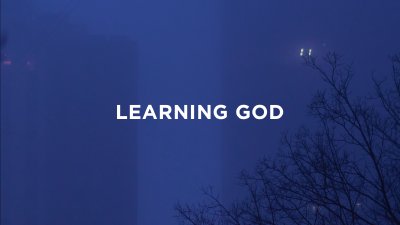


Learning God
sermons on Genesis 4-11
One For All
November 19, 2023 • Walter Henegar • Genesis 11:10—12:3
God's call of Abram sets the mold for the entire Bible: One man is chosen in order to bless the whole world. This blessing doesn't just save individuals; it builds a flourishing society. And Abram's participation in the blessing is entirely free, yet it costs him everything.
Expansive Grace
November 12, 2023 • Walter Henegar • Genesis 11:1–9
The tower of Babel is a powerful picture of human cooperation gone wrong—and of God’s overruling grace to make things right. It’s not really about pride and folly as much as the drive to find security and identity apart from God. When we resist being drawn with God into the thrilling diversity of his world, we find that: we’re always exhausted, our fear never goes away, we’ve got company, it doesn’t work, and it scares people away.
Drunk History
November 5, 2023 • Walter Henegar • Genesis 9:18—10:32
Noah’s drunken final chapter reminds us that all of us are shaped by the models around us, especially our families, but that God always works through fallible people. Ultimately, Jesus is re-gathering people from all the scattered descendants of Noah into his new family where grace reigns.
Bacon Rainbow
October 29, 2023 • Walter Henegar • Genesis 8:20—9:17
After the flood, God leads us to expect that life and blessing will continue to multiply, but in the shadow of death and judgment. This includes a new relationship to animals where we, the “apex predators” are accountable to God for how we treat animal life and especially human life. It also includes God’s covenant to preserve creation until Jesus returns to make all things new. In the sign of this covenant, God commits to redeem humanity, even aiming his “war bow” at his own heart. Millennia later, Jesus will fulfill this covenant promise on the cross.
Waiting for Relief
October 22, 2023 • Walter Henegar • Genesis 8:1–19
Waiting is hard, but God is at work while we wait. During Noah's long year in the ark, God reconfigured his posture toward the animal world, making him a more humble, cooperative, wondering steward of their lives. Above all, God was training Noah to trust him. We need to learn that same trust today. For Christians, our hope is not just in the "wind" that God uses to blow away the waters of chaos, but in his own Holy Spirit who lives within us, comforting, teaching, correcting, empowering and guaranteeing our permanent future with him.
When Waters Prevail
October 15, 2023 • Walter Henegar • Genesis 7
Genesis 7 lingers in the devastating details of the flood in order to deepen our appreciation for the mercy of God. Noah is not the hero of this story; God is. God gathers the animals, God shuts the door, and God preserves every creature within from the rising waters. 1 Peter 3 says the ark is a picture of baptism, which saves us because of the resurrection of Jesus. Jesus himself reminds us in Matthew 24 that his own return will come as unexpectedly as the flood—therefore we must not delay to hide ourselves by faith in the ark of his mercy.
Failure and Favor
October 8, 2023 • Walter Henegar • Genesis 6
In the time of Noah, unrestrained sex and violence revealed that human beings didn’t want to serve God; they wanted to be God. Rather than an angry overreaction, God’s plan to flood the world was a grieving act of uncreation and re-creation, bringing judgment and mercy at the same time. But Noah didn’t earn the right to receive this mercy; as verse 8 emphasizes, he “found favor in the eyes of the LORD” before he is described as righteous. This upside-down order of grace forms the pattern for the whole Bible and a preview of the Gospel of Jesus Christ, which continues to make people increasingly righteous in God’s sight.


Time Changes
September 24, 2023 • Walter Henegar • Genesis 5
The genealogy of Seth raises several hard questions about patriarchy, gender, literalism and biblical authority. Ultimately, though, it illustrates the sovereign grace of God working through broken people to restore us to relationship to him, forever.
Civilization and Its Discontents
September 17, 2023 • Walter Henegar • Genesis 4:17–26
Human culture always has the capacity for good, for evil, or for some combination of both. The descendants of murderous Cain engaged in good pursuits: city-building, livestock farming, music, technology, family-building and poetry. Yet because they rejected God’s loving rule, the way they practiced them was often corrupted, most heinously by Lamech’s polygamy and violent hyper-retribution. Enosh, however, the first descendant in the godly line of Seth, presents a contrast. According to biblical scholar Bruce Waltke, his name means weakness—and it was in the time of Enosh when people began to recognize their need for God. Today, Christians who live by faith in the “just mercy” of Jesus should still engage in all the worthy pursuits of culture-making. And rather than seeing all corruption as “out there” in The Culture, we must recognize that sin also exists in us and in Christian subcultures. A godly attitude toward culture-making, then, is both humble and curious, expecting that God can use unbelievers along with us to develop his world.
Broken Brotherhood
September 10, 2023 • Walter Henegar • Genesis 4:1–16
The story of Cain and Abel shows us ourselves, and more important, it shows us the heart of God: · We are stubbornly independent from God, but God is stubbornly interested in us · We are half-hearted toward him, but he is relentless in pursuing us · We are envious of others, but he is curious about us · We are vulnerable to sin’s sneak attacks, but he is powerful to fight with and for us · We are murderous, but he is just, making sure sin is paid for · We are self-pitying, but God is merciful Walter's 2018 sermons on Genesis 1-3: Genesis 1:1-2:3 http://designedsubspla.sh/hksc629 Genesis 2:4-25 https://atlantawestsidepresbyter.subspla.sh/hksc629 Genesis 2:21-3:24 https://atlantawestsidepresbyter.subspla.sh/x3885nh
